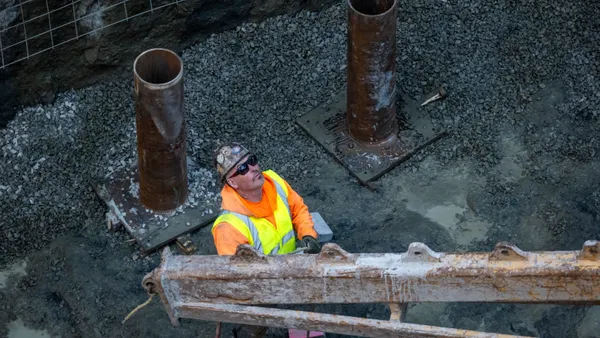Dive Brief:
- The share of first-time U.S. homebuyers fell to 32% in 2015, down from 33% a year ago, according to the 2015 National Association of Realtors Profile of Home Buyers and Sellers. That percentage is is the lowest since 1987, highlighting the fact that existing homeowners who are repeat buyers with dual incomes are driving the strong housing market.
- A quarter of first-time buyers, a majority citing student loan issues, reported their biggest challenge in buying a home was saving for a down payment. Higher rents have also made saving money difficult. In addition, home prices are rising, making it even more difficult for first-time buyers to enter the market. And although many lenders have loosened loan requirements, some are still denying potential borrowers at the lower end of acceptable credit parameters.
- According to the NAR report, the typical first-time-buyer household earned $69,400 — up from last year’s $68,300 — and purchased a 1,620-square-foot home for $170,000. The median repeat buyer purchased a 2,020 sf home for $246,000.
Dive Insight:
The lack of first-time buyers is exacerbating concerns that younger potential buyers are being left out of the housing recovery.
Many housing experts predicted 2015 would see strong first-time buyer activity as a natural result of low mortgage rates, job and income growth, but that hasn't been the case.
"There are several reasons why there should be more first-time buyers reaching the market, including persistently low mortgage rates, healthy job prospects for those college-educated and the fact that renting is becoming more unaffordable in many areas," said Lawrence Yun, NAR’s chief economist. "Unfortunately, there are just as many high hurdles slowing first-time buyers down."
The dip in the first-time buyer percentage mirrored the most recent existing-home sale report, which found first-time buyer share fell to 29% in September after reaching its highest percentage of 2015 in August..
Fannie Mae CEO Timothy Mayopoulos told The Wall Street Journal: "Among millennials and people generally, folks are living more conservatively than they did in the past. They are managing their affairs in a very cautious way... What we’re experiencing is a little bit of a natural reaction to this very difficult economic period that we went through."












